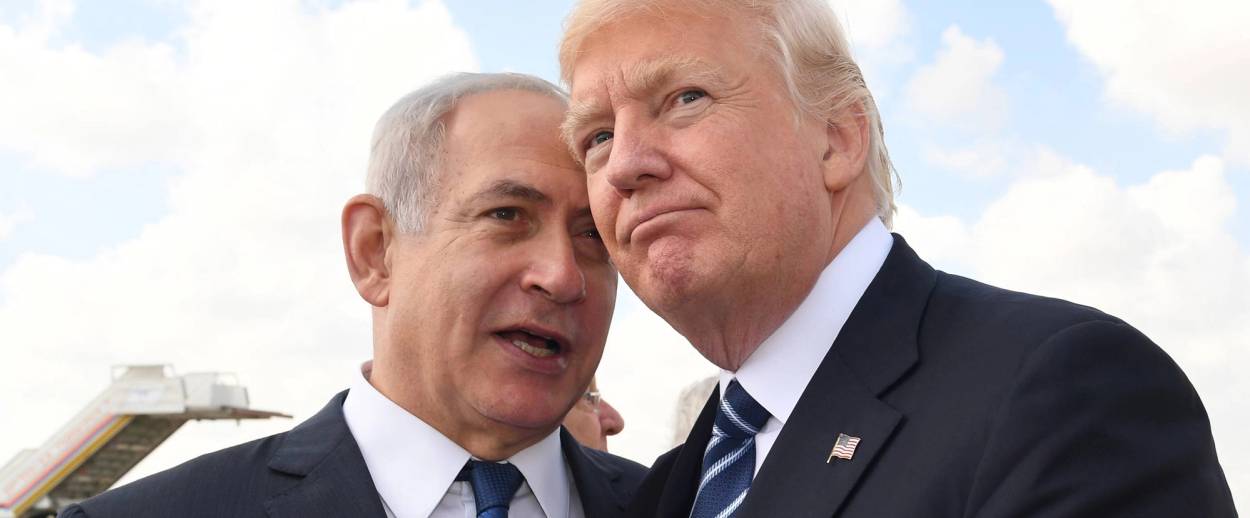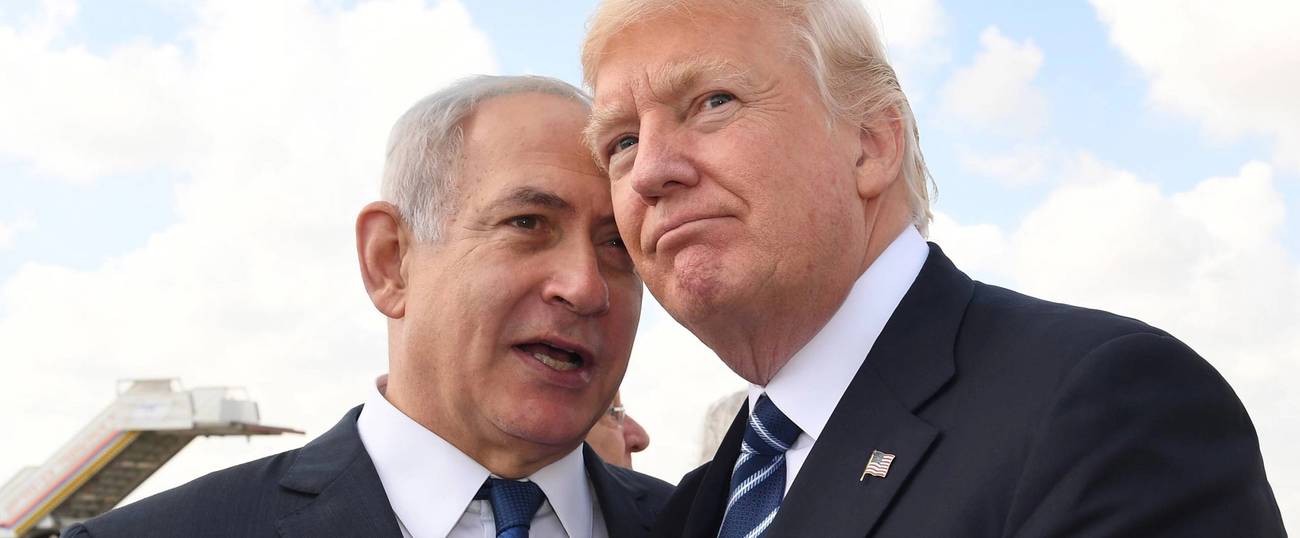On July 19, Israel’s ambassador to the United States, Ron Dermer, announced that Israel would permit entry to U.S. Reps. Ilhan Omar and Rashida Tlaib, despite their support for boycotting the Jewish state: “Out of respect for the U.S. Congress and the great alliance between Israel and America, we would not deny entry to any member of Congress into Israel.” Dermer, Netanyahu’s closest confidant and colloquially known as “Bibi’s Brain,” had reportedly recommended this course to his boss. As Haaretz correspondent Amir Tibon later reported, the decision was made to focus on this past week’s pro-Israel visit of 41 Democratic representatives, led by House Whip Steny Hoyer, rather than give more oxygen to an anti-Israel trip by just two Democratic congresswomen.
That entire plan, however, was detonated by Donald Trump for his own political purposes, to Israel’s great detriment. The president’s effort to undermine and alter the Israeli government’s approach began in early August, when Axios’ Barak Ravid reported that Trump was privately signaling that Israel should bar both Omar and Tlaib—personal antagonists who he had repeatedly assailed, often in bigoted terms. “Trump’s private views have reached the top level of the Israeli government,” Ravid reported.
Trump’s complaint put Netanyahu and his government in a bind—between their own original judgment that banning members of Congress would create a major rift with American Democrats and an erratic president who could be alienated by the smallest slight. Netanyahu himself, facing a tough reelection fight, could not afford a spat with Trump—the man whose face he had festooned on giant campaign posters. In an effort to buy time, the government announced on Thursday morning that it was “reconsidering” its position. Then Trump forced the issue:
It would show great weakness if Israel allowed Rep. Omar and Rep.Tlaib to visit. They hate Israel & all Jewish people, & there is nothing that can be said or done to change their minds. Minnesota and Michigan will have a hard time putting them back in office. They are a disgrace!
— Donald J. Trump (@realDonaldTrump) August 15, 2019
Coming from Trump, this was effectively an implied threat, and Netanyahu immediately folded, completely reversing his prior position and banning Omar and Tlaib one month after saying he wouldn’t.
Trump’s motivation here is self-evident. He personally despises the so-called Squad, having gone so far as to advocate that they leave the country. And he seeks to paint them—Tlaib and Omar included—as the face of the Democratic Party, in order to brand the entire party as extreme, splinter the opposition by forcing them to condemn each other, and motivate his base in the coming election. Last month, however, the vast majority of congressional Democrats, including one member of the Squad, voted to condemn the anti-Israel boycott movement, leaving three Squad members out in the cold. This posed a problem for Trump’s messaging. The solution: Draw attention to Tlaib’s and Omar’s fringe Israel views again and try once more to link them to the entire Democratic caucus. In case Trump’s motivation for bullying Israel into banning both legislators wasn’t already obvious, he promptly tweeted it out:
Representatives Omar and Tlaib are the face of the Democrat Party, and they HATE Israel!
— Donald J. Trump (@realDonaldTrump) August 15, 2019
It’s easy to see what Trump got out of this. It’s also easy to see what Israel got out of being used as Trump’s tool for personal and political revenge—and none of it is good. In order to placate the president, Netanyahu was forced to go against his own initial judgment and block sitting members of the U.S. Congress from entering Israel. He had to go back on assurances he had made to top congressional Democrats, and to deny the entreaties of some of the party’s staunchest pro-Israel supporters, like Florida’s Ted Deutch, New York’s Nita Lowey, and New Jersey’s Josh Gottheimer. And he had to lob a grenade into Israel’s already strained relations with the Democratic Party, which may well control the White House in 2020. The self-destructive nature of this move was evident from the swift wall-to-wall condemnation of it from Israel’s most vocal supporters, including pro-Israel stalwarts like AIPAC and the American Jewish Committee and Republicans like Sen. Marco Rubio.
Of course, all of this could have easily been avoided had Netanyahu simply stuck to his original stance. So why did Bibi do it? As Barak Ravid, the veteran reporter who first exposed Trump’s pressure campaign, explained, there was exactly one reason:
I want to tell you a secret: A month ago when Netanyahu decided to allow Omar and Tlaib into the country they alreadty supported BDS and he knew it back then. There is only one reason for Netanyahu’s backtracking today – the pressure from Donald Trump
— Barak Ravid (@BarakRavid) August 15, 2019
This capitulation is important not just for its consequences, but because it exposes key truths about both the Israeli prime minister and the American president.
First, while Netanyahu has always postured as a strong leader to the Israeli public, and built entire electoral campaigns around this perception, he actually has a long history of folding under political pressure, including reneging on important decisions even when he clearly knows it’s the wrong call. This was only the latest example. Faced with having to face down Donald Trump, he blinked.
Second, while Trump has long postured as a strong supporter of Israel, his conduct toward the country reveals much baser motives. In this case, he turned the country into a brute instrument for punishing his domestic opponents and furthering his political prospects, despite the damage it would cause to the Jewish state, and despite the stance of its own elected officials. Using threats to bully someone into doing something they had already rejected as dangerous is not how one treats friends or allies, as Republicans used to eagerly remind Obama-era Democrats. But it is how Trump just treated Israel. That’s because his stance on the Jewish state has never been about “supporting Israel.” It has always been, like everything else, about himself—and what’s in it for him.
Genuine supporters of Israel will be dealing with the fallout of the failures of these two leaders for some time to come.
Like this article? Sign up for our Daily Digest to get Tablet magazine’s new content in your inbox each morning.

